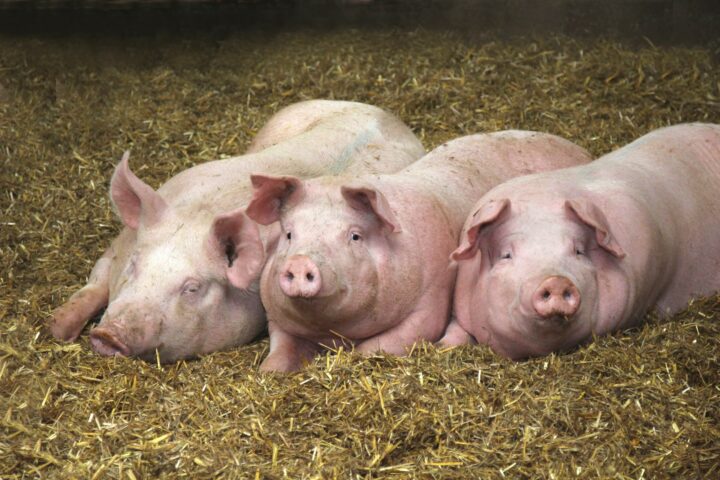
Stagnation instead of progress: Switzerland risks falling behind in new breeding techniques
An overview article in Schweizer Bauer shows how much the new breeding methods are preoccupying farming circles. Once the consultation process on the federal law has been completed, a bill is expected – then it will become clear whether there is actually the political will to approve it.
Wednesday, September 10, 2025
An overview article in Schweizer Bauer shows that the new breeding methods are also a major concern for farmers in Switzerland. The article outlines the current situation regarding the ongoing legislative process. On 9 July 2025, the consultation period for the ‘Federal Act on Plants from New Breeding Technologies’ ended, with which the Federal Council aims to enable the approval of these methods. The government will present a final draft in the coming months. It will then become clear whether there is indeed the political will to approve the new breeding methods in practice.
A draft lacking practical relevance
However, the Federal Council's current proposal does not go far enough. The proposed approval process would make the cultivation of new varieties so costly in practice that it would be virtually impossible to achieve any real benefits. Compared to the EU, which is taking a much more pragmatic approach with its differentiated strategy, Switzerland is at risk of falling behind. In addition, many consultation responses clearly show that the Federal Council's draft is not sufficiently evidence-based and does not take existing scientific findings sufficiently into account. From a technical point of view, it is clear that plants bred without foreign DNA should be treated in the same way as those produced using classical mutagenesis. The current proposal takes far too little account of this fact.
Against this backdrop, it is unfortunate that the otherwise very successful overview article in Schweizer Bauer does not highlight this discrepancy more strongly. This indirectly creates the impression that the proposed regulation is already a step towards liberalization – but in fact it is more of a watered-down solution that does not consistently balance opportunities and risks. In particular, the presentation of the arguments of proponents and opponents as equally weighted is misleading. The scientific evidence is clear: the new breeding methods do not pose any particular risks. The arguments of the opponents are therefore more esoteric in nature – this also applies to the so-called “food protection initiative,” which seeks to cement a complete blockade on breeding technology.
As the author of the article writes, Switzerland faces a fundamental decision in the coming months. It is to be hoped that the Federal Council will recognize the signs of the times and pave the way for appropriate, scientifically sound liberalization, so that farmers, who could benefit particularly from the new breeding methods, remain able to act in the future and can make their farms future-proof.
The so-called Food Protection Initiative has already collected 90,000 signatures. The association behind the initiative plans to submit the popular initiative before the end of 2025, writes Schweizer Bauer.
The Food Protection Initiative wants to comprehensively block new breeding technologies. In doing so, it overlooks the fact that genetic engineering has long been present in Switzerland—for example, through classical mutagenesis, which has been used in plant breeding for decades, or in imported foods and additives.Research and practice show that many products we consume every day already contain genetically modified ingredients without this posing any risks to consumers.
Sources
Kindly note:
We, a non-native editorial team value clear and faultless communication. At times we have to prioritize speed over perfection, utilizing tools, that are still learning.
We are deeply sorry for any observed stylistic or spelling errors.
Related articles

Genetic engineering? Yes, of course.
As a consumer, you often don't know: products advertised as GMO-free have long contained genetic engineering. This is a thorn in the side of opponents of genetic engineering. But it is easier to keep quiet about the ‘scandal’ – because something we have been eating for a long time no longer scares us.

‘No genetic engineering’ is simply not an option!
For years, politicians and environmental organisations have been stirring up unnecessary fears about a technology that has been helping to conserve resources and protect the environment for decades, while improving the quality and tolerability of food and cosmetics. It is time to put an end to this consumer deception.

Why consumers accept gene-edited foods on their plates
Acceptance of gene-edited foods increases when their tangible benefits are clear to consumers. Studies show that visible advantages for health, the environment or food security are key to public support.

What’s Really in Your Shopping Basket
Genetic engineering in our shopping basket? Yes – and much more often than we think. Whether it’s pasta, bread or vegetables: many of the everyday products we consume come from mutation breeding, which involves altering the genome and is considered safe. It’s high time to debunk the common myths.

Genomic breeding methods are not given a chance to prove themselves
Modern genomic breeding methods are legally classified as genetic engineering – and are therefore still effectively blocked. Yet we have been eating genetically modified plants for decades, just under the label of “classical mutagenesis.” The new, more precise techniques are regulated more strictly than the old ones, even though they are considered safer from a scientific perspective. A contradiction that urgently needs to be corrected. The EU is setting a good example.

No Pig Business: Why Testicle-Free Boars Are a Clear Win for Animal Welfare
New breeding methods are opening up new possibilities in both plant and animal breeding. They allow targeted genetic changes that can make animals more resilient, adaptable, and healthier.

